Best VPN services 2024: Top picks for speed, price, privacy, and more
29.07.2024 23:56:10 Yorum Yok GörüntülenmeA virtual private network service, aka a VPN, is one of the best tools you can use to boost your online privacy and security. It encrypts your traffic and tunnels it through a private server allowing you to keep your online activities anonymous and obscured from prying eyes.
There are a few things you’ll want to consider when looking for a great VPN: First, it should be able to keep your internet usage private and secure without leaks. Speed is another factor — privacy and security are crucial, but you don’t want the service to slow your connection to a crawl either. And if you’re concerned with anonymity, you should seek out a VPN with data collection policies that are clear and transparent, preferably with multiple independent audits. Finally, the number of available servers and country locations a VPN offers is worth bearing in mind if you’re trying to get around region locks in specific countries.
Why you should trust me: Here at PCWorld we’ve been testing computer hardware, software, and services since the 1980s. For my own part, I’m continually testing all of the major VPNs on the market and many lesser-known services with an eye toward the features and performance that a VPN user should care about most. For an in-depth guide on my testing methodology, see how we test VPN services at PCWorld.
Granted, not everyone wants or needs a VPN service — although if online privacy is important to you, I think it should be a priority. You might just want a VPN for occasional use such as when you’re using public Wi-Fi, for instance. If that’s the case, head over to our roundup of the best free VPNs for more recommendations, and caveats about the limitations of using a free VPN.
Updated July 29, 2024: Check out my latest review of FastestVPN. It might not live up to its name in regards to speed, but this VPN is continuing to add features and bolster its service with each year and the price can’t be beat.
ExpressVPN – Best VPN overall
Pros
- Excellent speeds
- Easy-to-use interface
- Unblocks all streaming services
- Great security and privacy practices
Cons
- More expensive than many competitors
- Light on some features for a top VPN
Why I like ExpressVPN
It’s difficult to select the best overall VPN. Some services are weaker on privacy, but are significantly easier to use with tons of features, while others could use a serious interface redesign.
For many years we chose the best VPN based purely on privacy, but that is no longer the sole concern of most people when choosing a VPN. Privacy is important, to be sure, but so are performance, extra features, a wide country selection, and ease of use. ExpressVPN has it all, making it my top choice for VPN. Not only is it one of the fastest VPNs I’ve ever tested, but it also has a very easy-to-use Windows app.
Its servers are all diskless, running everything in RAM — a welcome practice that’s become fairly standard these days. ExpressVPN also has wide device support — recently adding AppleTV to its lineup of supported devices, as well as a smart DNS feature for set-top boxes, consoles, and more. It is even branching out from just being a VPN provider to taking a more holistic approach to security for users, adding ad- and tracker-blocking and, most recently, a password manager to the service, as well.
It’s not the cheapest VPN out there, but you do get excellent value for the price, and the service is regularly bringing in third-party auditors to bolster its privacy credentials.
Who should buy ExpressVPN
Since ExpressVPN is my pick for best VPN overall, I think it’s a great option for everyone. VPN novices will find that they can just download the software, choose their server location and connect — it’s as simple as that. But more advanced users will be able to choose from features such as split-tunneling, protocol optimization, and a kill switch.
Also, ExpressVPN in its attempt to provide an all-inclusive security suite now offers users ad- and tracker-blocking, parental controls, and most recently, a password manager. Plus, ExpressVPN has one of the most expansive device support networks I’ve ever seen. So users can use the VPN across practically any and all devices they own — up to eight simultaneous device connections.
NordVPN – Best VPN for features
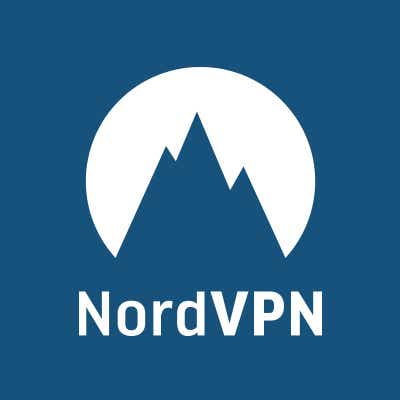
Pros
- Loaded with tons of VPN configuration options
- Outstanding speeds
- Multiple independent no-logs audits
- Included antivirus and password manager
Cons
- Expensive
Why I like NordVPN
Just like my top pick, NordVPN is also an excellent choice. Nord is arguably more feature-filled than ExpressVPN even, and the service is just one part of a larger suite of privacy- and security-focused products from parent company Nord Security. The desktop app is very easy to use and offers a ton of different features including access to the TOR network over VPN, multi-hop options, Meshnet, and a security suite complete with ad- and malware-blocking and Nord’s latest password manager and link-checker safety tool.
NordVPN has also gone a long way to bolster user trust with the completion of its fourth independently verified no-logs policy earlier this year. The service also carries out vendor assessments and uses RAM-only diskless servers for increased security. The speeds are also outstanding, reaching an average of 72 percent of the base internet speed in a test across all servers — the fastest of any VPN I’ve tested.
The only reason I placed Nord second is due to the slight edge ExpressVPN has in regards to privacy and transparency. Still, you can’t go wrong if you decide to go with NordVPN as your VPN of choice.
Who should buy NordVPN
Similar to ExpressVPN, I think NordVPN is truly a solid option for everyone. It comes with an excellent feature set that will appeal to power users as well as an easy-to-use app that is intuitive and straightforward. Also, just like ExpressVPN, there will be no problems accessing any geo-restricted streaming service while using NordVPN.
Additionally, for those who don’t want to bother subscribing to a lot of different security apps, NordVPN offers its own security features such as malware protection, ad- and tracker-blocking, and file-download protection all in one convenient subscription.
Mullvad – Best VPN for privacy

Pros
- Good speeds
- Inexpensive monthly plan
- Unrivaled anonymity
- Open-source
Cons
- Struggles with unblocking streaming services
- Smaller server network
- Lacks some extra features that other VPNs offer
Why I like Mullvad
As Hotspot Shield is to speeds, so Mullvad is to privacy and anonymity. I’ve never seen another VPN that actively resists knowing who you are the way Mullvad does. Mullvad doesn’t ask for your email address, name, or anything else. Instead it assigns a random account number that acts as your identifier and login.
Mullvad accepts payments using standard methods such as credit cards and PayPal, but you can also mail your payment in cash to remain as private as possible. Mullvad has a no-logging policy and doesn’t collect any identifying metadata from your usage.
Mullvad is also fast, ranking among our top five for speeds.
Who should buy Mullvad
Mullvad is all about privacy. Don’t get me wrong, it’s a more than capable VPN for any user. But the ultra-privacy conscious will find the most to like in its anonymized payment system, commitment to not collecting metadata, and strong privacy promises. I did find some hiccups when trying to access streaming services, so users who want their VPN to bypass location-restricted content may want to look elsewhere.
IVPN – Best VPN for privacy runner-up
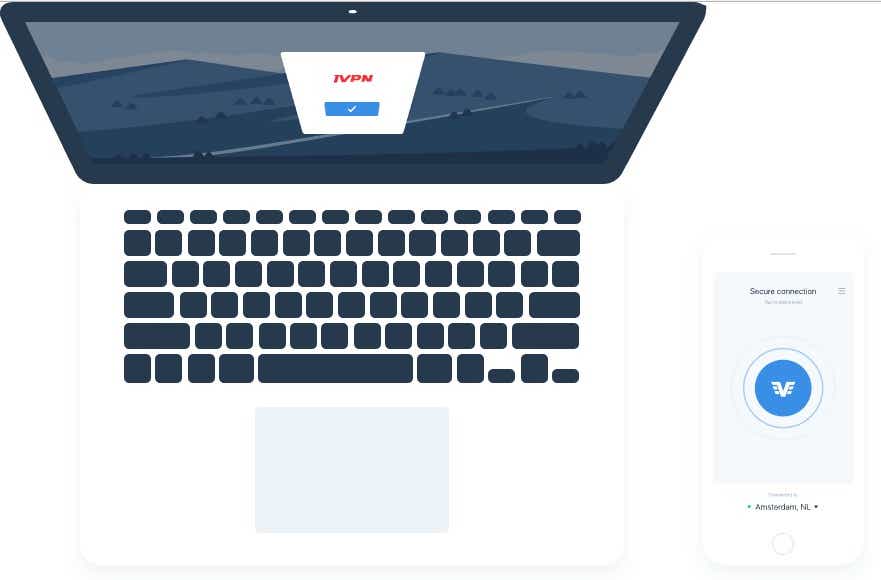
Pros
- Excellent speeds for its U.S., UK and European servers
- Interface is easy to understand
- Default WireGuard protocol connects quickly
Cons
- It’s on the expensive side at $100 per year
- Server network is under 100 servers
Why I like IVPN
Coming in behind Mullvad is IVPN. This Gibraltar-based VPN recently moved to dumping email-based identifiers and going with randomly assigned account numbers instead. Similar to Mullvad, it accepts a variety of payment options for privacy including cash, as well as the standard credit cards, PayPal, and other options like Bitcoin and Monero. IVPN doesn’t rank as one of the fastest VPNs, but it does have acceptable speeds for most casual uses.
Another option is OVPN. This VPN doesn’t go to the levels that Mullvad and IVPN do, but it does only require a username and password to create an account. OVPN doesn’t require an email address, though you can add one as a backstop for account recovery should you forget your password. OVPN doesn’t rank in our top 10 for speeds, but it’s just outside the top performers at number 12.
Who should buy IVPN
IVPN will mainly appeal to those concerned with privacy. Similar to Mullvad, it has an anonymized payment system and further obfuscates user IDs via randomly assigned number instead of emails. Not to mention that it has a strong privacy policy as well.
Hotspot Shield – Fastest VPN
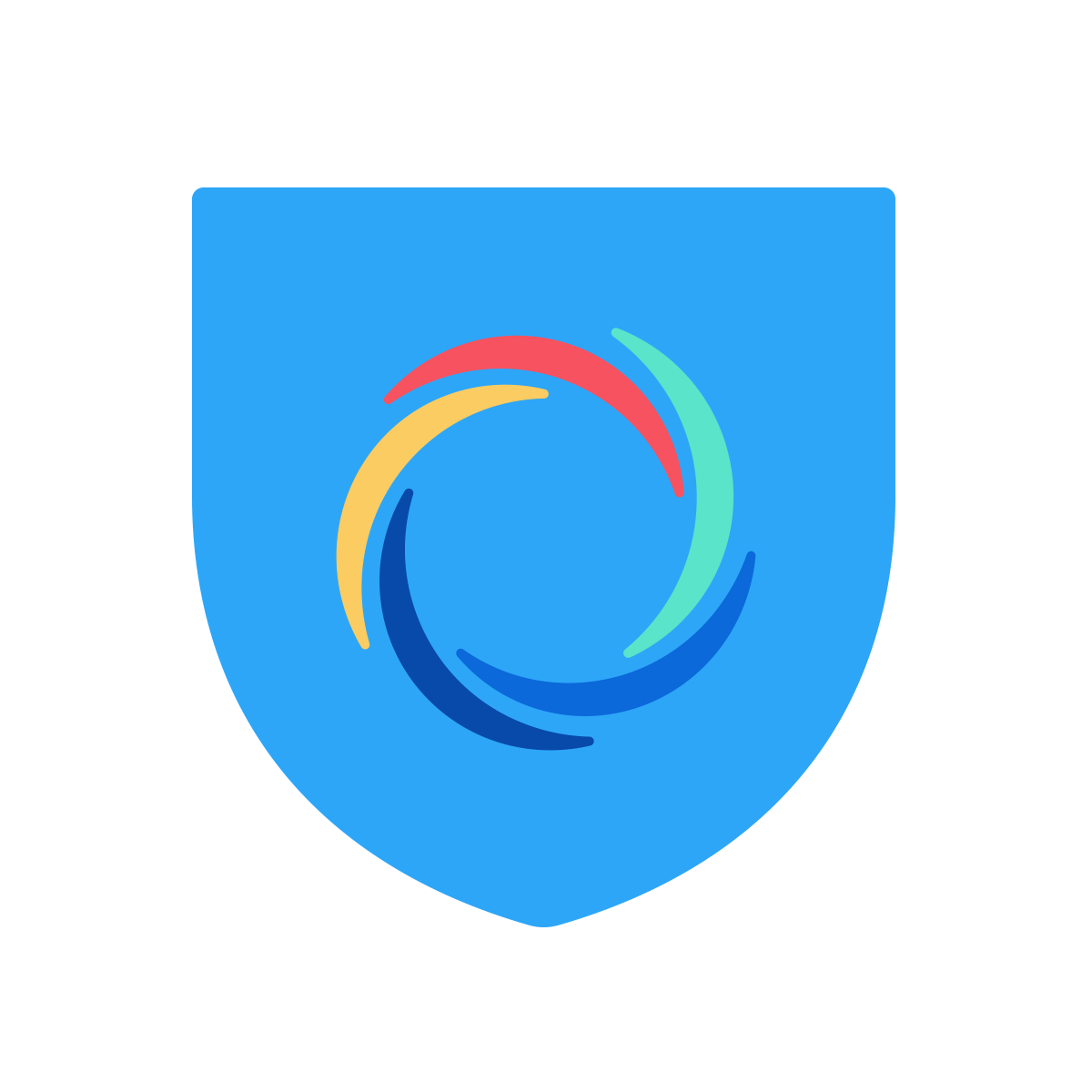
Pros
- Very fast
- Large country selection and plenty of servers
Cons
- Domain visits are recorded, though not tied to you
- Expensive
Why I like Hotspot Shield
While my pick for best overall VPN, ExpressVPN, boasts above-average speeds, Hotspot Shield is on another level. No other service comes close to hitting the speeds I’ve seen with this service. This isn’t just a one-off occurrence either; Hotspot Shield has consistently been at the top with speeds that are 12 to 15 percentage points above the competition. In my tests, Hotspot Shield maintained around 67 percent of the base speed. That’s substantially faster than you’ll see with most VPN services — though your experience may vary.
On the downside, Hotspot Shield doesn’t allow for a way to pay anonymously and its privacy policy may not sit well with some. Still, Hotspot Shield has excellent speeds, its desktop application is very nice, and as a bonus it works with U.S. Netflix.
Who should buy Hotspot Shield
Hotspot Shield is for those looking to maintain the fastest connection possible with the minimum loss of base speed. In the past it was far and away the fastest VPN I had ever tested, but in recent years other services seem to be catching up.
Regardless, it is still one of the best around if connection speed is your main concern. I also found that it can access location-restricted content on most major streaming services. This, combined with its excellent speeds makes it a good option if you mainly use a VPN to access streaming content.
Private Internet Access – Best VPN for split-tunneling
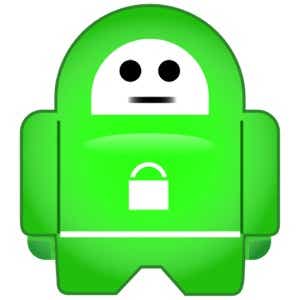
Pros
- Independently verified no-logs policy
- Unlimited simultaneous device connections
- Incredible number of servers
- Great extra features such as multi-hop and split tunneling
Cons
- App panel awkwardly located on the lower-right corner of screen by default
- Speeds are just okay
Why I like Private Internet Access
Private Internet Access (PIA) has been around for awhile and has demonstrated that it can continue to innovate and improve with each passing year. The latest version of PIA is no different. By updating its service to include unlimited simultaneous device connections it has improved upon an already solid VPN.
But the real feature that stands out with PIA is its split-tunneling feature. While this is a common feature in most of the services on this list, PIA goes above and beyond. Not only does it allow users to pick and choose which apps they wish to run through the VPN, but it also allows them to designate IP addresses and DNS requests as well. It even comes with the option for an app-based kill switch, which will block traffic only on specific apps should the VPN connection break.
There are a few awkward interface issues and PIA isn’t the fastest service I’ve ever tested. But neither of these issues makes the service any less viable.
Who should buy Private Internet Access
PIA is continuing to establish itself, along with the likes of ExpressVPN and NordVPN, as one of the best VPNs around. I think it can be a great VPN for all users. However, where PIA really shines is in its extensive customizable feature set. Power users and those who like their apps to be customized to their individual needs will especially love all of the tweaking that this app allows you to do — even outside of just split-tunneling.
AirVPN – Best VPN for torrents
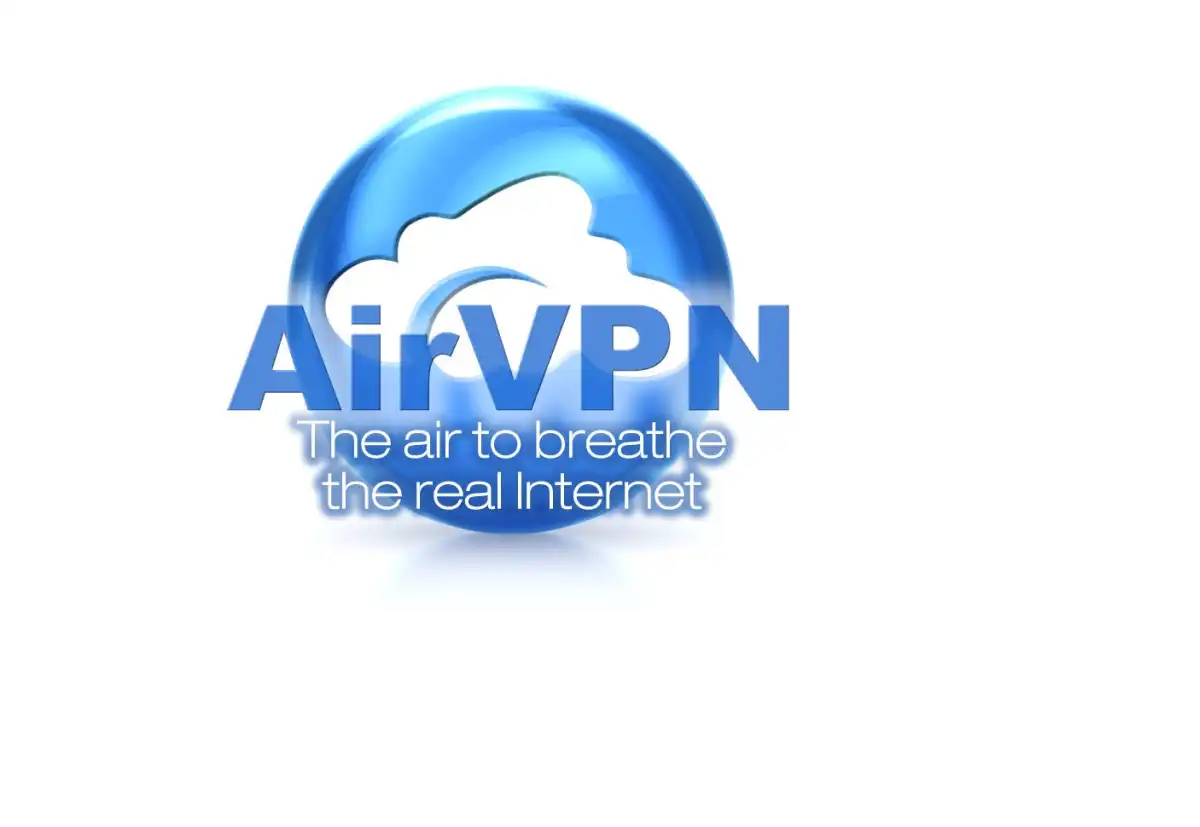
Pros
- Excellent speeds
- Detailed real-time information about the network
- Good pricing with many subscription options
Cons
- Team is largely anonymous
Why I like AirVPN
Torrents get a bad rap, and to be honest, that’s for good reason. Using torrents is the number-one way to download pirated material including movies, TV shows, music, and games. But that’s not all there is to torrenting. It’s a very efficient way to download legitimate software such as Linux distributions and authorized content from sites such as BitTorrent Now.
Whatever your reasons, when it comes to torrenting, a VPN makes it easier — especially if the network you’re on blocks torrenting. There are many VPNs among our top picks that could be used for downloading torrents, but my preferred choice is AirVPN. This no-frills VPN has a reasonable number of servers and country locations, really good speeds, excellent network transparency, and a focus on user protection. The price is also right at about $58 a year.
Who should buy AirVPN
As AirVPN allows for P2P connections on all of its servers, it’s a great option for those who want to use their VPN to remain anonymous while surfing the web or torrenting. It also uses diskless RAM servers so data is only kept for as long as you’re actively using the VPN itself. Plus, AirVPN’s small team of dedicated hacktivists and privacy advocates are committed to putting user privacy and security at the forefront. This means that it’s ideal for privacy-conscious users.
CyberGhost – Best VPN for server locations
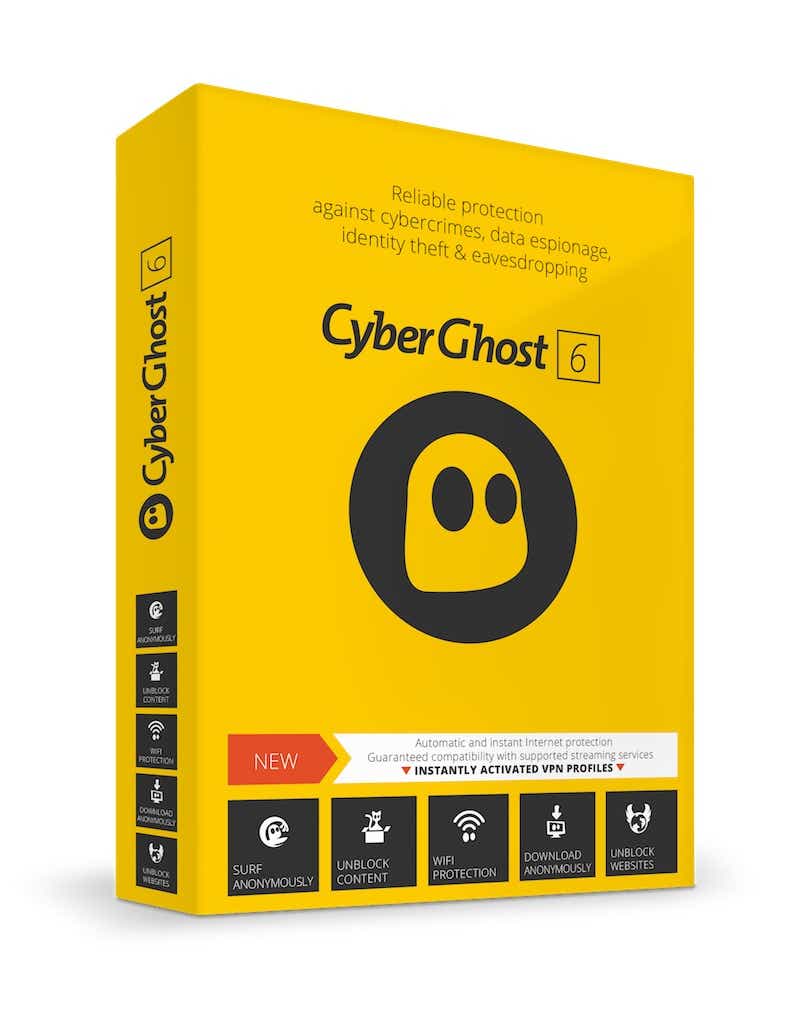
Pros
- Easy-to-use interface
- Independently verified no-log policy
- Seriously impressive server spread
Cons
- Lacks some common features such as multi-hop and double VPN
- Server speeds are hit-or-miss, especially in Asia
Why I like CyberGhost
If you want variety and options in the server locations from your VPN, then there are none better t

